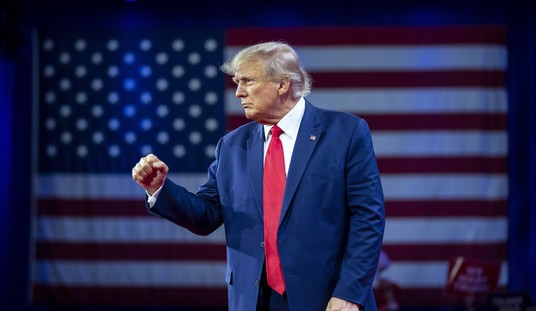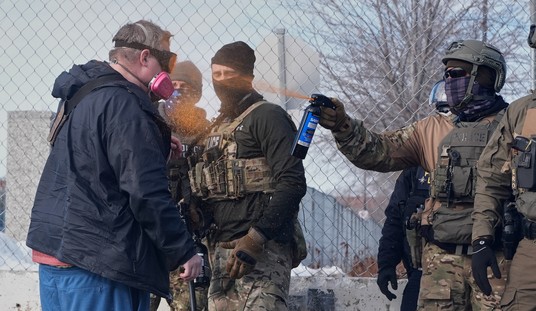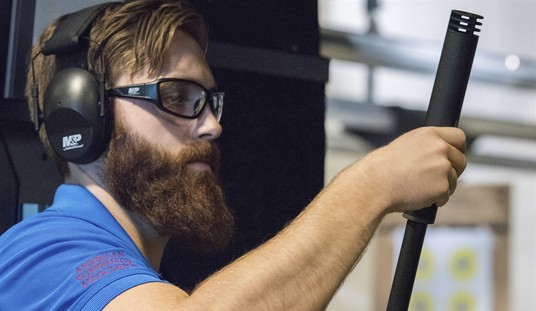I’ll warn you right up front that this isn’t the cheeriest of shows, but I’m really glad that Jon Stokes, editor of ThePrepared.com and Open Source Defense could join me on today’s show to talk about the political violence taking place across the country and what, if anything, can be done to ratchet down the tensions and restore some semblance of calm to the chaotic streets of Kenosha, Portland, Minneapolis, Seattle, Chicago, Detroit, New York, and so many other communities that have seen businesses burned, lives lost, and over the past three months. Go check out the entire conversation with Jon Stokes above, which touches on much more than what I’m able to cover here.
It was this tweet by Stokes that prompted me to invite him on today’s show, and that’s where our lengthy discussion began.
I'd put this differently & say that there is a contagion effect at work in this radicalization, & that the contagion is spreading nightly with all the scenes on our feeds and in our streets.
There's an inflection point out there somewhere, & unless the contagion is arrested soon https://t.co/OQmL9G8Yq0
— jonstokes.com (@jonst0kes) August 26, 2020
Chaos is contagious, and I think the radicalization on both ends that Stokes talks about is real. On the Left, every officer-involved shooting is now another sign that police are hunting and targeting Black men (as LeBron James said the other day). On the Right, every building burned in “protest” is another sign that revolution is right around the corner. Each incident brings a few more people off of the sidelines or the muddled middle and into one tribe or another, our anger and rage at our fellow Americans grows, and our empathy and understanding wanes.
Is there any way to stop the spiral? Stokes isn’t optimistic, and I’m more pessimistic than I was just a few months ago. I firmly believe that most Americans aren’t interested in a civil war, but we’re also not okay with burning down our communities in the name of progress. Most of us believe in the right of peaceful protest, just as most of us believe in accountability for police officers when they themselves violate the law. So why doesn’t it feel that way?
Part of the problem is that many politicians, the media, and celebrities seem intent on pushing us forward into the abyss. I’ll give you a couple of examples just from today.
"I don't think that there should be any debates," says @SpeakerPelosi. "I wouldn't legitimize a conversation with him nor a debate in terms of the presidency of the United States." #Election2020
— Steve Herman (@W7VOA) August 27, 2020
When the Speaker of the House infers that the president is illegitimate, that’s a problem. Democrats don’t like Republicans. Republicans don’t like Democrats. That’s not new. The willingness to destroy institutional norms like presidential debates, however, is a pretty recent addition to our political establishment.
Then we have this tweet by Democratic congresswoman Ayanna Pressley of Massachusetts.
A 17 year old white supremacist domestic terrorist drove across state lines, armed with an AR 15.
He shot and killed 2 people who had assembled to affirm the value, dignity, and worth of Black lives.
Fix your damn headlines.
— Ayanna Pressley (@AyannaPressley) August 27, 2020
100,000 retweets as I type this, but zero evidence that Kyle Rittenhouse, the 17-year old charged with two counts of murder in Kenosha, Wisconsin, is a white supremacist domestic terrorist. We also don’t know the motivations of the two individuals who had assembled on the streets of Kenosha. Were they there to “affirm the value, dignity, and worth of Black lives,” or were they there to stir up some trouble?
It could be that both of Pressley’s statements turn out to be true. It could also be that one or both of her statements end up being demonstrably false. What is absolutely certain is that Rep. Pressley doesn’t have any sort of inside scoop on the character or motivation of Rittenhouse or Anthony Huber and Joseph Rosenbaum at the moment. She’s creating the narrative that she wants to see, and the truth is a secondary concern at best.
Whatever new information we learn about those involved in the Kenosha shooting will be ignored or highlighted, depending on your point of view. You won’t hear Pressley mention the previous criminal histories of the two men who were killed in Kenosha, but she very well might bring up the fact that Rittenhouse was in a police cadet program in Illinois.
Still, we’ve had awful politicians in the past, but rarely have we reached this level of mutual contempt. A lack of leadership alone can’t explain all of our issues.
Honestly, it would take a book to highlight everything that’s led up to this point, but Stokes and I spend a little time on how social media is playing a major role in today’s divisiveness. The constant deluge of data and information makes it difficult to sit and wait for the facts to be known. We’ll see a ten-second video clip and think we know the whole story. We’ll read tweets from some of our favorite commentators and believe we have a firm grasp on all of the pertinent facts. Rarely is that the case. I was talking with a friend of mine not long ago and they said we’ve become a “subject line society.” Just give me the headline, in other words. I don’t need to know what’s in the body of the email (or the fifth paragraph of a news story).
Add in the endless stream of people online saying dumb, false, inflammatory, or just plain awful things that can be replied to instantaneously, and we’ve got a quick and easy way to ramp up our mutual aggression.
By the way, I’m not calling for a ban on smartphones or demanding an end to “high capacity data plans.” The idea of banning or restricting technology to solve our problems is just as silly when we’re talking about our laptops as it is when Shannon Watts or Joe Biden calls for a gun ban. Whether we’re talking about political violence or personal violence, the answer ultimately lies within us. Do we even want to get along anymore, or have we convinced ourselves that somehow things would be better if we were at war with each other? Do we imagine some brighter day on the other side of the conflict, without thinking much about the conflict itself?
As I half-seriously suggested to Jon Stokes, since Hollywood is now officially rebooting virtually everything, maybe the answer is in a reboot of American Gladiators, only this time with real gladiators. Perhaps we need a space where Americans who have fundamental political disagreements with each other can get together and beat the snot out of one another without neighborhood businesses being destroyed or a massive police response. Red versus Blue, half an hour in the arena, may the best team win. Would it work? Probably not. Is what we’re doing now working? Absolutely not.
I live not far from the Appomattox Courthouse National Battlefield, and it’s become one of my favorite places to go and walk around while I ponder the state of the nation and the words of Abraham Lincoln in his first inaugural address, four years before Lee surrendered to Grant in the front parlor of Wilmer McLean’s home (the one McLean moved to after his first home ended up in the middle of the First Battle of Bull Run).
We are not enemies, but friends. We must not be enemies. Though passion may have strained it must not break our bonds of affection. The mystic chords of memory, stretching from every battlefield and patriot grave to every living heart and hearthstone all over this broad land, will yet swell the chorus of the Union, when again touched, as surely they will be, by the better angels of our nature.
It may be that our differences are so large that conflict is inevitable, but I truly hope that’s not the case. If it does come down to red vs. blue, I know which tribe will be mine, but for now my allegiance is to the red, white, and blue, and I suspect that’s the case for the vast majority of us who aren’t lighting fires, smashing windows, or trying to accelerate our descent into what would be a very uncivil war.









Join the conversation as a VIP Member